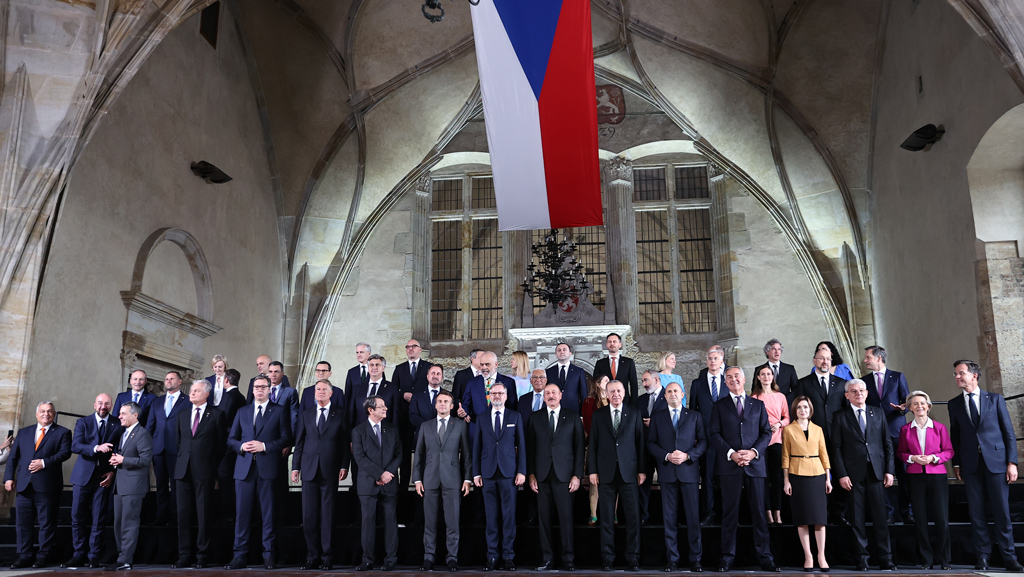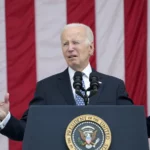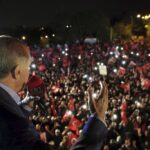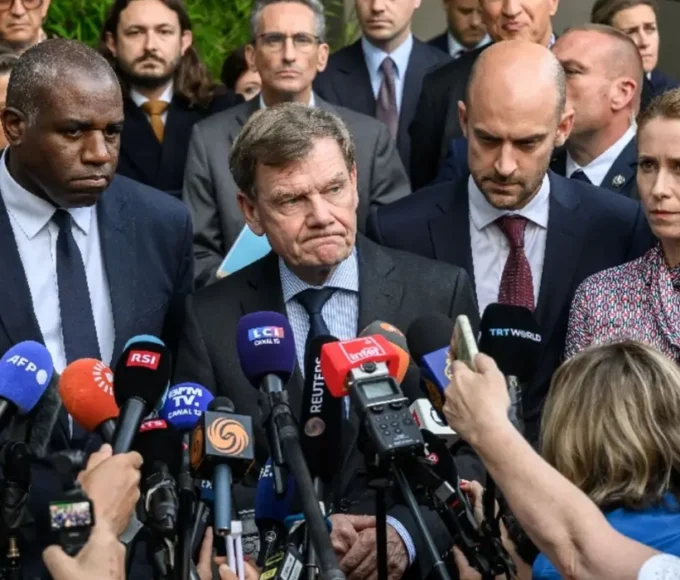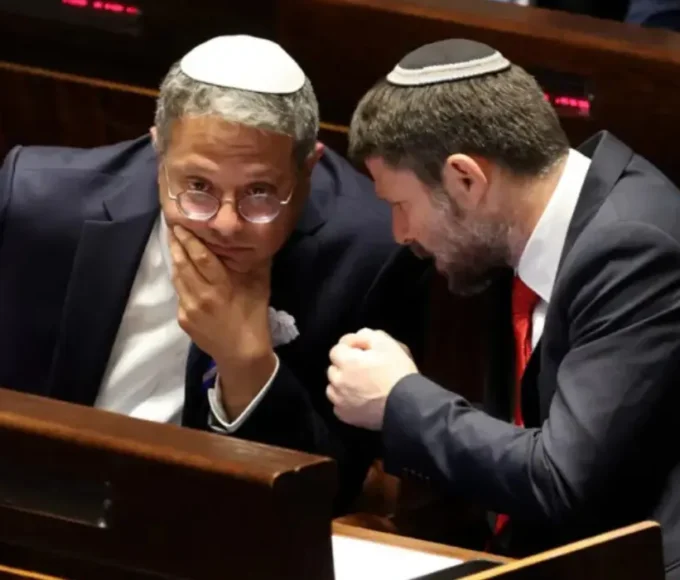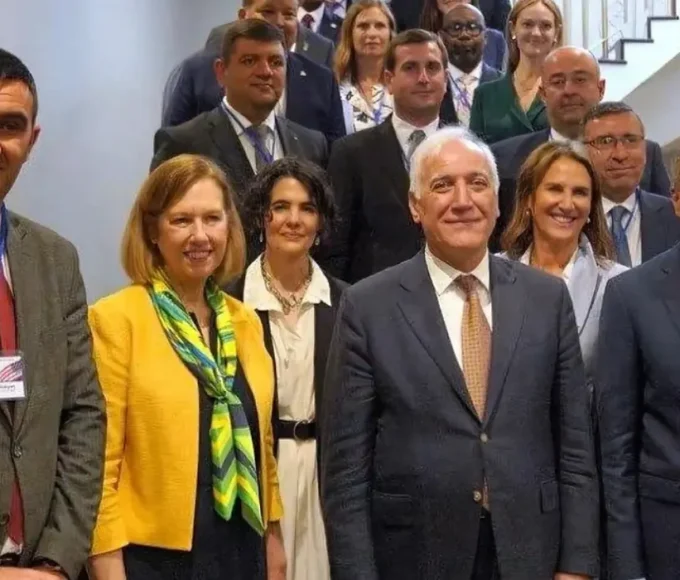When it was born on October 6, 2022, the European Political Community (EPC) was met with skepticism at best, derision at worst. Assimilated to an ineffective and cosmetic “thing” by the realists, it nevertheless has three concrete political effects as of this week: recalling European support for Ukraine at a decisive moment; anchor the former Soviet Socialist Republic of Moldova to Europe at a time when it fears destabilization and above all curb centrifugal and destabilizing forces in the Middle East and the Balkans.
Cosmetics of “things” and diplomatic developments
Since their appearance and multiplication, we like to criticize summits, forums and international organizations: from the UN to the G20 and from the Paris Peace Forum to the Conferences of the Parties (COP), they are regularly considered as ” stuff” to use the expression used by Charles De Gaulle to designate the United Nations (UN), in his speech of September 10, 1960, delivered in Nantes. Whether it is Hubert Védrine or Henry Kissinger, realists like to denigrate the ineffectiveness of these diplomatic formats, especially if they are multilateral, recent and attempt to unite beyond traditional alliances.
However, there is nothing shocking about creativity in European diplomacy, on the contrary. Geopolitical developments are so rapid and so drastic that they require innovation and therefore trial and error. Let us recall the (economic) conditions which presided over the creation of the European Political Community: the desire to present Russia with a group of 47 neighboring States during its invasion of Ukraine; the need to avoid a clear drift of Turkey towards Russia and the observation of the necessary slowness of the processes of accession to the European Union and NATO.
As of this week, the CPE fulfills its vocation, so that the “thing”, perhaps ephemeral, produces the political effects desired by its creators and its promoters. Its time, place and format are particularly relevant in the current conjuncture.
The Time: Recalling Support for Ukraine at a Critical Moment
The second meeting of the CPE responds to a very pressing situation: the announcement and preparation of a Ukrainian counter-offensive at the end of the era of the rasputitsa, the thaw followed by the miring of the ground in the plains of ‘Eastern Europe. Neither a “last chance attack” nor a decisive campaign, this counter-offensive is crucial for kyiv in many respects. It will take place just before the general elections scheduled for the country in the fall and before the United States sinks into its inherent electoral narcissism in the winter preceding the presidential elections across the Atlantic. It will be carried out when European armaments, trainers and intelligence have been broken down into the Ukrainian Armed Forces. And above all, it will intervene during the second year of the conflict in order to show that Ukraine is not resigned to the status quo which would deprive it of around 20% of its territory.
The CPE meeting in Moldova this week reaffirms – with nuance – the support of 47 bordering states for Ukrainian territorial integrity, respect for international legality and rejection of the use of force to resolve international disputes. This might seem trivial if force had not made a comeback in intra-European relations for more than a decade. And above all, the EPC creates this convergence without requiring from its States Parties a perfect unity in the policy of sanctions. Makeshift or pragmatic solution, it doesn’t matter: the format is relevant and effective for the Ukrainian situation.
The place: anchoring Moldova in Europe
Organizing the second EPC meeting in Chisinau, Moldova, also has an immediate political effect which serves the strategy of the European Union beyond its strict institutional and territorial framework.
Holding this summit in the capital of the former Soviet Socialist Republic of Moldova makes it clear to Russia that Europe does not recognize an intangible area of influence for the Russian Federation. Just as it was extended in 2004 not only to people’s democracies but also to former SSRs (Estonia, Latvia, Lithuania), so the Europeans, in the very broad sense, are showing their refusal of a new partition of Europe between, on the one hand, American Europe and, on the other hand, Russian Europe. It is a minimal effect because it is negative, but it has the merit of contesting what some in Moscow consider to be historical evidence.
In addition, the CPE is being held a few months after Maia Sandu, President of Moldova, officially submitted her country’s application for membership of the European Union and denounced the attempts to destabilize her country marked by a partition of done since its independence in 1991. The Europeans thus show that the partition of Moldova is no more acceptable to them than that of the continent as a whole.
Here again, the CPE can appear as a short-term institution. But what does its solidification into bureaucracy matter as long as the desired political effect is obtained.
The format: avoid decoupling
Finally, the list of participants is in itself a victory for the cohesion of the continent. Of course, the unity is far from real. Several states openly play it alone: the Turkey of newly re-elected President Erdogan does not apply sanctions to Russia and extends its arms to its hydrocarbons, its capital and its tourists; Serbia under President Vucic is playing on its traditional alliances with Russia to capture cheap energy and Russian capital while continuing to benefit from the goodwill due to candidate states for the European Union. Armenia and Azerbaijan use the obligatory ecumenism of the format to open up diplomatically following their armed conflict in Nagorno-Karabakh.
The CPE is both frustrating and fruitful in geopolitical matters: the unity is pure facade but the isolation of Russia (and Belarus) is real on its western and southern flanks; the concreteness of the decisions is gaseous but the symbolic weight is important in the economic situation; sustainability is uncertain but relevance is assured. This allows the European Union to have an instrument to relay its messages, limit its internal dissensions (with Hungary) and speak to its major Others. In short, to act as a continental leader.
The future of an illusion or the beginnings of an institution?
The sustainability, long-term effectiveness and fruitfulness of the European Political Community are still in question. Only the test of time and the vicissitudes of European geopolitics will make it possible to test its relevance or demonstrate its vanity. However, in the short term, this “thing” produces real political effects. Whether it is a disposable Kleenex format or a lasting continental institution, the European political community today has several advantages: it opens up and deprovincializes the geopolitics of the European Union; it forces Europeans to dialogue and confront each other with their immediate Others (Turkey, Albania, Serbia); and finally, it contributes to the policy of sanctions by demonstrating the diplomatic isolation of Russia on its western flank.
This article is originally published on telos-eu.com


